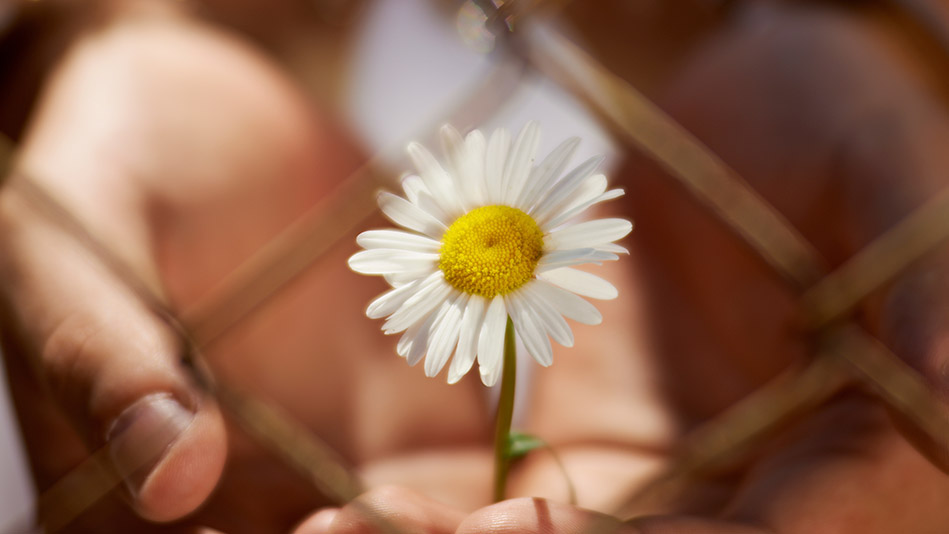Why Meditation Is Becoming So Popular In Prisons
The power of Bodhi behind bars.

Photo by iStock/mediaphotos
When Melissa* discovered meditation in 2007, about halfway through her 14 years in prison, she was profoundly comforted by the idea of accepting her circumstances without judgment. "No counseling could have given me what I've learned from this practice—to stop thinking about everything that should be, could be, would be," says the former gang member, who was incarcerated at age 16 after committing a violent crime. "And it's helped me have compassion for the misguided girl I was."
Many inmates have landed in prison after an act of pure impulse, says Kate Crisp, executive director of the Prison Mindfulness Institute, and a practice of attentive awareness can help them widen the gap between feeling and behavior. "When you're aware of what's happening, you can say, 'Wait a minute, things could move a little slower here,'" she says. The Institute offers a 12-week course for inmates called Path of Freedom, as well as programs for the newly released, corrections staff, probation and parole officers, and police; the curriculum focuses on meditation and mindfulness as tools for communicating, resolving conflict, and becoming less reactive.
Managing anxiety is another benefit, says Crisp. "A lot of women prisoners are suffering trauma after abuse, and most are mothers, so they're worried about their children." In a study coauthored by Crisp last year, 18 female inmates who took meditation classes experienced less stress, anxiety, and depression afterward.
For Melissa, who was released last year, freedom has brought a new set of challenges. At 30, she'd never had a job, and her father had to teach her how to drive. "My life is not at all the way I wanted it to be, but I've learned to love myself so I can move forward. We all have that gift. We're all survivors."
*Name has been changed.
Many inmates have landed in prison after an act of pure impulse, says Kate Crisp, executive director of the Prison Mindfulness Institute, and a practice of attentive awareness can help them widen the gap between feeling and behavior. "When you're aware of what's happening, you can say, 'Wait a minute, things could move a little slower here,'" she says. The Institute offers a 12-week course for inmates called Path of Freedom, as well as programs for the newly released, corrections staff, probation and parole officers, and police; the curriculum focuses on meditation and mindfulness as tools for communicating, resolving conflict, and becoming less reactive.
Managing anxiety is another benefit, says Crisp. "A lot of women prisoners are suffering trauma after abuse, and most are mothers, so they're worried about their children." In a study coauthored by Crisp last year, 18 female inmates who took meditation classes experienced less stress, anxiety, and depression afterward.
For Melissa, who was released last year, freedom has brought a new set of challenges. At 30, she'd never had a job, and her father had to teach her how to drive. "My life is not at all the way I wanted it to be, but I've learned to love myself so I can move forward. We all have that gift. We're all survivors."
*Name has been changed.



